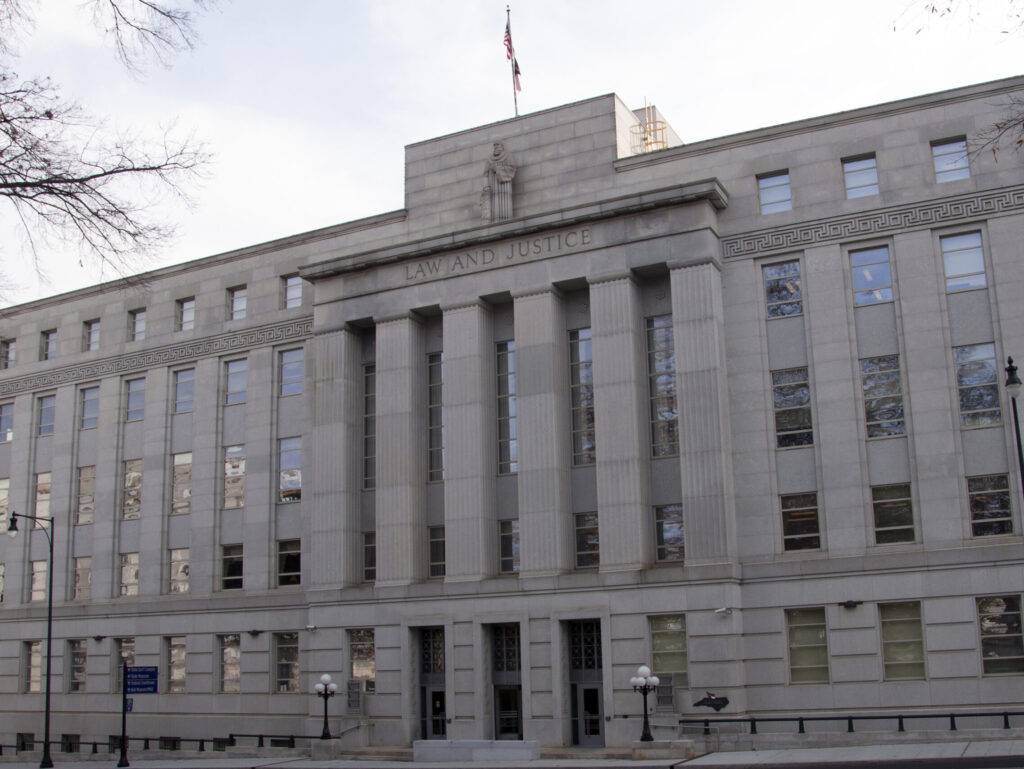North Carolina Supreme Court Dismisses GOP Candidate’s Election Challenge, Lower Courts Must Review First

In an unexpected move last night, the North Carolina Supreme Court dismissed GOP candidate Jefferson Griffin’s petition challenging over 60,000 ballots cast in his November 2024 race for a seat on the bench, which he lost to incumbent Democratic Justice Allison Riggs by over 700 votes.
However, the ruling does not mark the end of Griffin’s ongoing legal dispute over his recent election loss.
Wednesday’s order specified that the Wake County Superior Court must hear Griffin’s protests concerning three separate categories of ballots — all of which were previously rejected by the state board of elections — before the state’s highest court ultimately weighs in. The three buckets of ballots challenged by Griffin include those cast by overseas voters who did not submit a copy of their photo IDs, voters who never previously resided in North Carolina and individuals whose voter registrations were allegedly incomplete.
The state Supreme Court also noted that its previous Jan. 7 order halting certification of the contested election will remain in place until the matter is fully resolved, leaving the final outcome of the race hanging in the balance. Democratic Justice Anita Earls dissented from her colleagues’ decision to leave the stay of certification in place, noting that it “prevents the Wake County Superior Court from deciding for itself whether Griffin is likely to succeed on the merits and whether a stay is justified.”
Riggs responded to the court’s latest action in a statement saying that “while I agree with the North Carolina Supreme Court’s decision yesterday to dismiss Judge Griffin’s inappropriate request for a writ of prohibition, I am disappointed that the door has been opened to dragging this out for so long.”
She added that her “election is the last uncertified race in the country” and that she “will continue to make sure that the more than 65,000 voters who Griffin seeks to disenfranchise have their voices heard.”
Yesterday’s order came in response to a petition filed by Griffin directly in the state Supreme Court seeking to disqualify more than 60,000 votes — a move that Riggs and Democrats have continually characterized as an effort to disenfranchise voters en masse.
The North Carolina State Board of Elections and Riggs had removed the case to federal court, arguing that Griffin’s post hoc request to change the state’s voting rules after votes have already been cast and counted would implicate North Carolinians’ rights under federal law and the U.S. Constitution. But a Trump-appointed judge sent the case back down to the state’s highest court, prompting an appeal by the board to the 4th U.S. Circuit Court of Appeals.
As of now, it remains unclear as to whether the 4th Circuit will still hear arguments concerning the board’s appeal seeking to keep the case in federal court, which is set to take place Monday. In a notice to the 4th Circuit Thursday, Riggs urged the court to allow the oral argument to take place as planned.
In addition to filing a request directly in the North Carolina Supreme Court, Griffin in December filed three separate legal actions contesting different categories of ballots in Wake County Superior Court. Wednesday’s state Supreme Court order directed the Wake County Superior Court to “proceed expeditiously” in these cases, which will likely make their way back to the state’s highest court.
The board of elections had similarly moved those three cases to federal court, where they were consolidated into one legal action; however, the same federal judge who is presiding over Griffin’s other suit sent this trio of cases back to state court. Again, the board appealed the judge’s remand order to the 4th Circuit, but oral argument has not yet been set.
With the posture of Griffin’s challenges becoming increasingly more convoluted and drawn out, it is not yet clear which court will have the final say and when.
Read the North Carolina Supreme Court’s order here.
Learn more about the cases in Wake County Superior Court here.